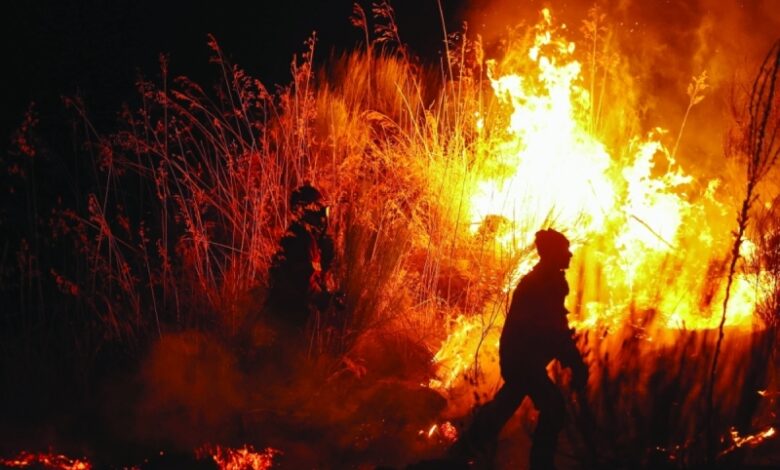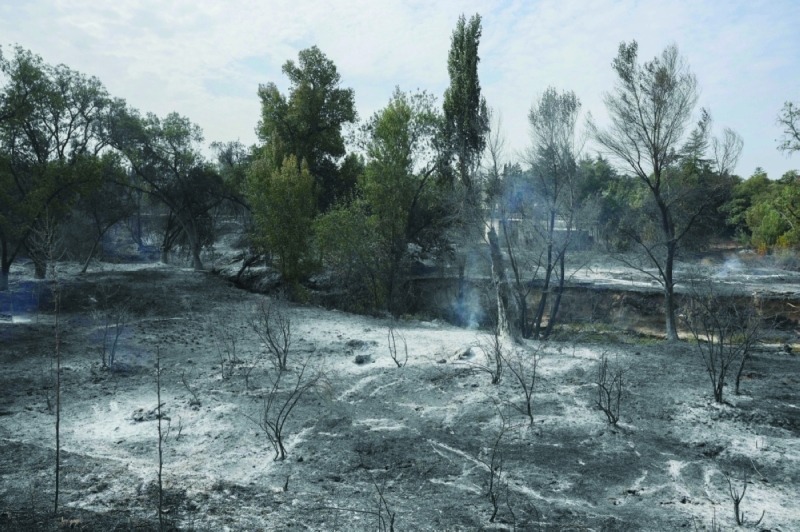
Europe is reeling from an intense heat wave that has engulfed large parts of the continent, fueling wildfires — particularly across the Iberian Peninsula — and forcing thousands from their homes.
In Spain, dozens of fires of varying intensity have been reported. In Tres Cantos, 25 kilometers north of Madrid, a man died overnight when a blaze broke out Monday evening, consuming over 1,000 hectares.
Spanish Prime Minister Pedro Sánchez warned on X saying, “We are at extreme risk from forest fires.”

Thousands of residents spent the night outside, with many forced to evacuate. In southern Spain, flames once again threatened the tourist hotspot of Tarifa in Andalusia, prompting rapid evacuations “in record time,” according to Antonio Sanz, the Andalusian regional government’s internal affairs advisor.
By Tuesday morning, hundreds of the approximately 2,000 evacuees from Cádiz province were allowed to return home.
Meanwhile, in Castile and León, about 600 people evacuated due to a fire near the UNESCO World Heritage Site of Las Médulas returned home, though several blazes near Zamora continue to burn.

In Portugal, three major fires remain active, including the large Trancoso blaze in central Portugal, which began Saturday and is being fought by 700 firefighters with air support.
Italy faces extreme heat, with the highest-level weather alert in 11 cities, including Rome, Milan, and Turin.
While much of the country swelters, firefighters have made progress against a blaze in Mount Vesuvius National Park, which overlooks the Bay of Naples.
In France, authorities declared maximum alert in 14 departments in the southwest and center-east. Residents described stifling heat with no relief. The prolonged drought — especially severe in Mediterranean regions — has worsened wildfire risks.
The Balkans are also suffering, with 14 active fires reported in Albania, alongside major blazes in Montenegro and Croatia.
Meteorologist Akshay Duras from the University of Reading explained that a stable “heat dome” over Europe is driving the extreme temperatures. He stressed that climate change has made heat waves more frequent and intense, while long-term drought conditions create ideal wildfire conditions.
The UK Environment Agency has declared water scarcity a “national concern,” noting that the first half of 2025 has been the driest since 1976 — a warning sign of worsening climate-related challenges across Europe.
Follow The Times Kuwait on X, Instagram and Facebook for the latest news updates












